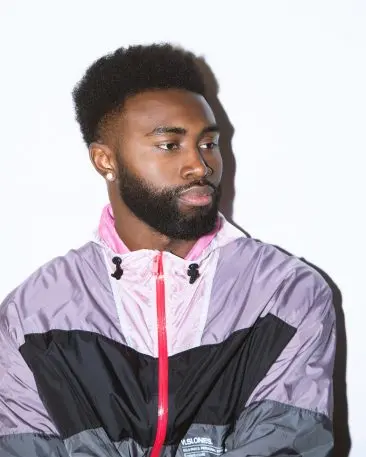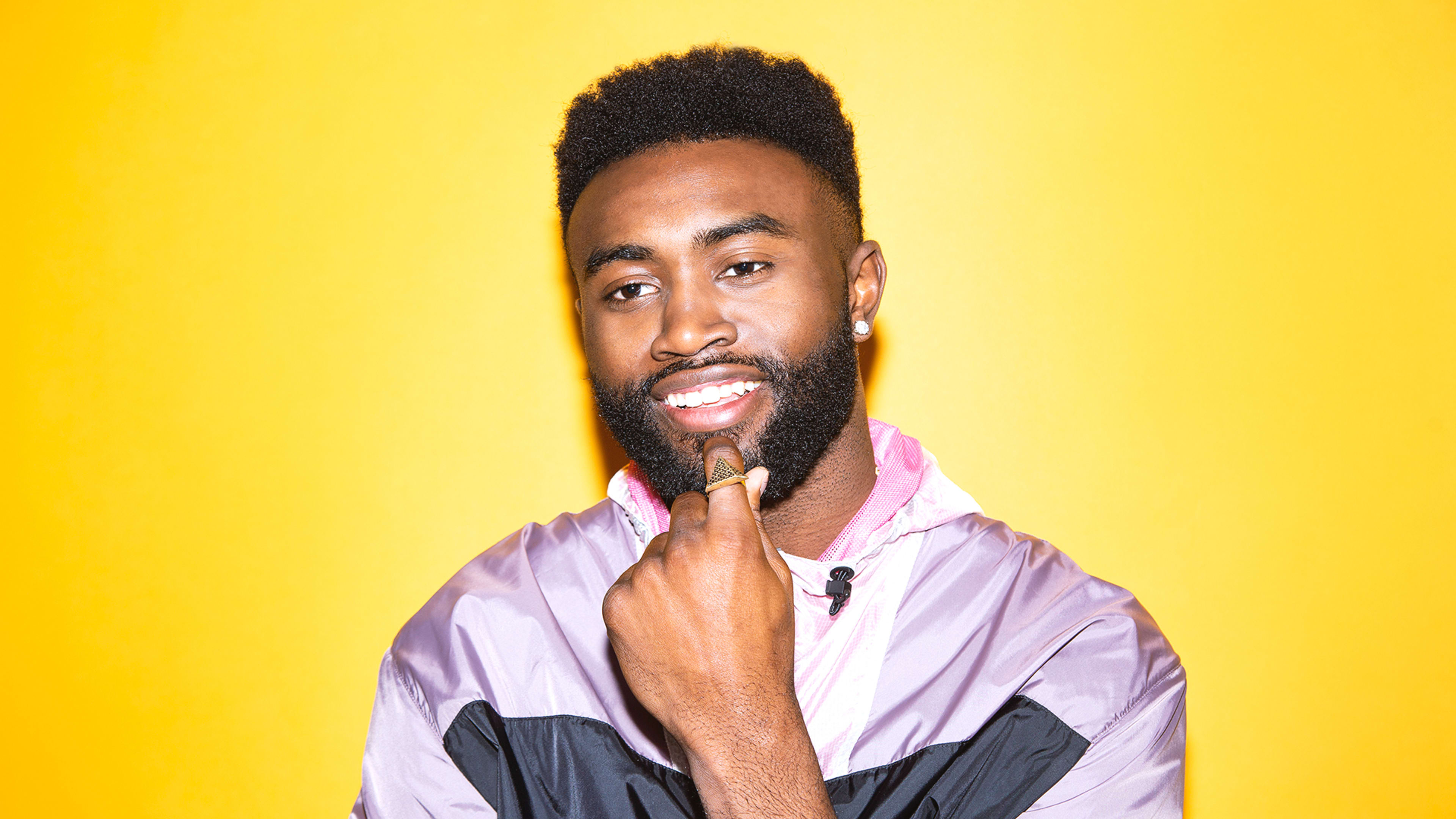When Jaylen Brown has a few seconds to spare on the clock and an open floor around him, he likes to go to the basket with a reverse dunk. He launches his six-foot-seven-inch body off both feet at once, then pulls them together and tucks them underneath himself like a kid on a trampoline. His Celtics jersey stretches across his chest. With his back already turned to the net, he locks eyes on the rim over his shoulder before looking away and trusting his hands to do the rest. They flip back over his head, and with the confidence of someone who was born to play basketball, Brown scores. He is nimble and powerful—a natural athlete. But that is just his day job.
Last month, the storied MIT Media Lab named the 22-year-old professional basketball player as one of its 2019 Director’s Fellows. The research lab boasts a robust community of luminaries, including founder Nicolas Negroponte and architect Neri Oxman; Brown will be part of a special program that aims to bring new perspectives and ideas to the lab’s work. Other newly named fellows include Michael Tubbs, the mayor of Stockton, California, and legendary skateboarder Rodney Mullen. At MIT, they’ll attempt to fix the problems they see in the world using a method of research that its director, Joi Ito, calls “antidisciplinary,” meaning that each approach will be a unique and multifaceted product of an array of interests.
“Antidisciplinary” is a description that could just as easily be applied to Brown. The small forward, who just completed his third season with the Celtics, is ready for a greater challenge: taking on the American education system.

For Brown one of the more obvious cracks in that system is standardized testing, which he thinks has a disproportionate influence over a person’s ability to succeed. Rather than allowing his students’ scores to dominate their futures, Brown will intervene and scope out each of their interests and aptitudes so that they can be fostered in a world-class environment. From there, he’ll collaborate with community centers and structures that are already in place to build a global learning network. Technology will be the key. He wants to see Boston kids talking with Compton kids, and Compton kids talking with students in Indonesia. He wants a revolution.
To get there, he’s calling on others to buck their disciplines as well and collaborate with him at MIT. “It doesn’t matter what background they come from,” he says. “If they support education and they support our youth, I want to ask them to be a part of the initiative, to extend their reach and help push this forward. I want to have a bunch of people make education cool.”
If anyone can make education cool, it’s Brown. As a high school senior he was pursued by a number of basketball powerhouses, but instead opted to attend Berkeley, where he took graduate-level courses as a freshman. He seemed poised for a promising collegiate experience—academically and athletically—when the NBA came calling, offering him the chance to earn millions. Brown, who also had a summer internship with Base Ventures, sees little difference between athletes who leave college to pursue professional careers and tech entrepreneurs who drop out to found companies.
“It is literally the same thing. It’s just as hard. [Getting to the] NBA might even be harder,” he says. And he isn’t wrong. The NBA reports that the probability of going pro after the NCAA is 1.2%, and that’s if you even make it to division one college ball. Meanwhile, a Harvard Business School study suggests that first-time entrepreneurs have an 18% chance at success. “I think they’re both impressive. And I’ve always had the ability to do both,” says Brown, who signed a multimillion dollar contract with the Celtics in 2016.
Brown knows what his critics are saying: “Shut up and dribble.” He’s heard suggestions he and other athletes should focus on sports and not wade into politics, race relations, or education. But just three seasons into his pro career, Brown is already thinking about his future beyond the NBA.
“People look at me like, ‘Jaylen, you’re an NBA player. What are you complaining about?’ But just because I escaped the barriers that society has put up, why should I forget about the people who didn’t or won’t?” Brown says. “I had to shoot over a million jump shots to be able to stand in front of you today. My goal is to prove that the journey can be a little bit smoother for the next kid, and I plan to bridge that gap.”
Recognize your brand's excellence by applying to this year's Brands That Matters Awards before the early-rate deadline, May 3.
